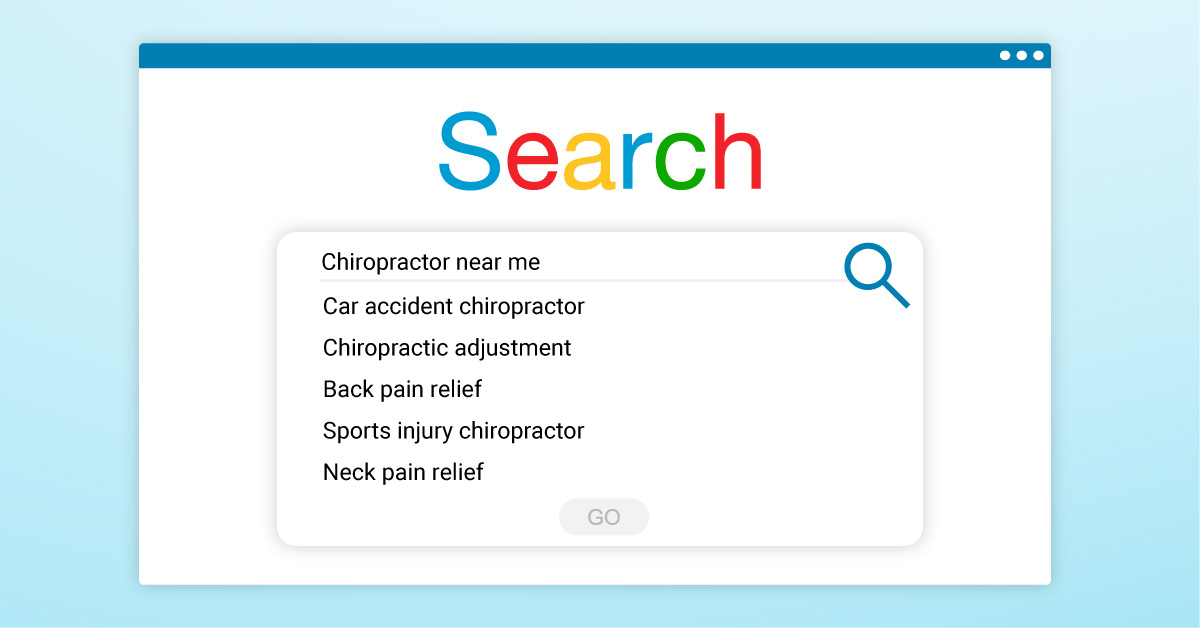What You Need to Know About the Future of Search
As we prepare for the new year, we should be keeping up with the latest information involving search and how patients or clients are finding health care practices. We already know that the vast majority of our population heads to the internet when they need to search for anything, especially when they’re looking for a business they would like to visit.
But, are you considering how they are conducting these search queries? Of course, the most obvious option would be for the user to type in the information that they are searching for, but what if they don’t use a screen at all? What if instead, they just use their voices?

It is predicted that by 2020, 50 percent of all organic search will be done by voice search. That’s right, 50 percent! As technology advances and we see more people utilizing voice search to do things like making purchases or schedule appointments, businesses are beginning to use specific trigger words to help properly optimize their website and content for these searches.
Have you begun to prepare for the voice search optimization takeover? If not, we’re here to tell you why it’s important to optimize your practice’s website content for search by voice and how to do so.
The Evolution of Voice Search
 Over the years, speech recognition technology has made countless improvements and made it more simple to do accurate voice searches. We now have Artificial Intelligence (AI) like the Google Assistant, Amazon’s Alexa, and of course Apple’s Siri, to help us conduct these voice searches.
Over the years, speech recognition technology has made countless improvements and made it more simple to do accurate voice searches. We now have Artificial Intelligence (AI) like the Google Assistant, Amazon’s Alexa, and of course Apple’s Siri, to help us conduct these voice searches.
Google launched its voice search feature back in 2012 and since then has added countless regional languages to its settings.
Search by voice allows users to search for information hands-free while doing other things in their daily lives. When driving or doing things around the house, it’s quick and easy to simply ask “Google, where is the closest optometrist?” while also focusing on other tasks.
Smart speakers like the Amazon Echo or Google Home have become extremely common in households all around the globe. When more smart speaker technology began to emerge, many owners enjoyed engaging with the AIs out of curiosity; to see how the AI would respond to their comments and questions. But as these products continue to improve, tech companies are doing whatever they can to keep up with consumer demand and the growth of search by voice.
How to Adapt for Search By Voice
If tech companies are making the necessary changes to fit the needs of their consumers who actively search by voice, why isn’t your local business?
According to BrightLocal, 58 percent of consumers have found local businesses using voice search within the past year.
It’s important for small businesses to adapt to the use of this AI by potential customers to make searches on the internet. But what can your practice do to adapt?
Voice Search Optimization With Keywords
 In order to optimize your website content for voice search, one of the best ways to do so is to write content that is more conversational and mimics the way people naturally say things or ask questions.
In order to optimize your website content for voice search, one of the best ways to do so is to write content that is more conversational and mimics the way people naturally say things or ask questions.
Voice search queries tend to be longer and more specific as if the user is speaking to another human. They won’t use shorter phrases as they tend to do when doing a traditional search.
When someone is typing their search query to find a local business, they may write “why is my back hurting” versus when they use voice search, they can ask “What are the causes and treatments for lower back pain?” See the difference?
Many times traditional search and voice search will produce different results. If you’re optimizing your practice’s website content for this, long-tail keywords are vital in helping you to execute this shift to appease to both types of searches.
Long-tail keywords are phrases that include three or more words. They are important with traditional SEO but especially with voice search optimization. Use keywords in your content that are the most relevant to the voice query your targeted audience is using. Research which keyword phrases or questions are popular among your potential patients or clients and include those in your web content.
For example, if you own a veterinary practice, your clients might be likely to look up “what vaccinations do my dogs need?” Be sure to answer the question within your content. You can provide the answer in the body of your text or in the title.
The same way that you would choose which keywords to incorporate in your content for traditional SEO, is how you should go about choosing the most relevant and high-performing key phrases for voice search that will produce the highest conversion rate.
Increase Page Speed
 Page speed is how long it takes for your web page to load for a user when they enter your site. Just as page speed affects your Google ranking with traditional searches, it does so with voice queries as well.
Page speed is how long it takes for your web page to load for a user when they enter your site. Just as page speed affects your Google ranking with traditional searches, it does so with voice queries as well.
When people use voice search, they are often in need of information or looking to find a local business as quickly as possible. But if it takes your site longer to load than the number of times visitors are willing to wait or what Google sees as an average to high speed, then your business will not be a top-ranking result.
There are plenty of available tools online that can analyze your website and tell you how fast your loading time is and how you can improve it. Have questions about your website’s page speed? Give us a call at 888.719.0733 to help out!
Update All Your Online Listings
One of the most important factors for getting your business found with voice search is by having your practice listed on relevant business listing websites and directories. Your practice should absolutely appear on sites like Google, Yelp, Facebook, etc.
Be sure that all the information listed about your practice is accurate and up-to-date. You should include your website URL, business hours, phone number, and address. You can even add a small snippet of your business and what it is that you do.
If you aren’t appearing in these directories, there are services that can help you do this. We offer a listing solution that will help your patients or clients find you absolutely anywhere. Whether it’s on a search engine, social media, or maps, they’ll know exactly where your business is located and the best way to contact your practice.
Make Your Website Mobile-Friendly
If your website is not optimized for mobile devices in the digital era, you are falling behind your local competitors with your effort to attract new clients or patients.

Most of the voice searches that occur are done via a mobile device. That means that when users are on the go, they are searching by voice for the information they desire. Making sure that your website is responsive and mobile-friendly is one of the major factors in being the top-ranking result for voice searches.
Voice Search Takeover
Staying abreast of the latest technological changes involving things like SEO and the way searches are conducting can seem like a lot of work to someone who is unfamiliar. But all the responsibility does not have to fall on you and your staff.
Optimizing a website that is responsive and mobile-friendly for voice search is our specialty and we can design one for your local practice that will help attract more business and help you increase your Google ranking. Do you need assistance in preparing your website for this shift to voice search optimization?
Contact us today for more information on how we can help!
How are you tackling search by voice optimization for your practice?
Check out our other resources to learn how to properly optimize your website for search engines.
5 SEO Tips for Mobile-Friendly Websites
How to Brainstorm Keywords and Improve Your Google Ranking
Why SEO Matters for Small Businesses



